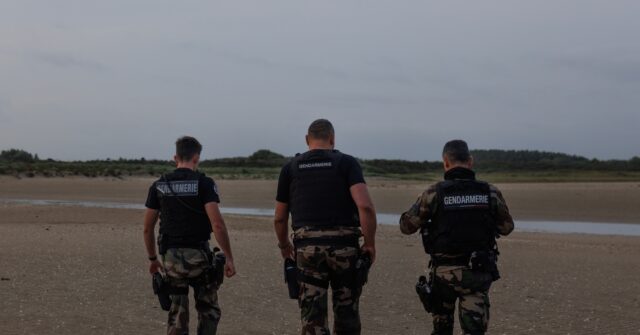The ongoing migrant crisis in the English Channel took a tragic turn recently, claiming the lives of four individuals, including a two-year-old child. The French authorities confirmed that these deaths occurred during separate attempts to navigate the treacherous waters in small boats. Jacques Billant, the prefect of the Pas-de-Calais region, reported on the unfortunate incidents, emphasizing the vulnerability and peril faced by illegal migrants. The French Interior Minister, Bruno Retailleau, described the child’s death as particularly horrific, highlighting that it resulted from being “trampled” in a boat amid the chaos. This incident underscores the dire circumstances surrounding irregular migration across one of the world’s busiest shipping lanes.
The death of the child, along with three other adult migrants, has reignited discussions about the role of people smugglers in this tragic humanitarian crisis. Retailleau pointed fingers at these criminal networks, stating that they bear the responsibility for the deaths, profiting from the desperation of individuals seeking a better life. He affirmed the French government’s commitment to intensifying the fight against these “mafias” that exploit vulnerable migrants. The urgent need for action is compounded by the continuous influx of migrants attempting the perilous journey, with over 395 individuals successfully reaching the UK in a single day, showcasing the persistent challenge faced by authorities on both sides of the Channel.
The increasing number of illegal crossings has drawn the attention of international organizations, including the UN’s International Organization for Migration. Its reports depict a grim picture, with at least 194 illegal boat migrants having lost their lives while trying to reach the UK from France since 2018. Despite these alarming statistics, the French government remains resistant to deporting migrants back to the UK, maintaining that doing so would jeopardize their safety. Consequently, the French Navy often assists migrant boats into UK waters, where they are taken in by British authorities, prompting accusations that they serve as facilitators rather than deterrents for illegal crossings.
In the UK, the Labour government, led by Prime Minister Sir Keir Starmer, faces increasing scrutiny for its handling of these migrations. Since taking office, over 10,000 migrants have crossed the Channel, prompting criticism from various political factions, including calls from figures like Nigel Farage to address the crisis more decisively. Starmer’s government, while seeking to disrupt people smuggling networks, has not yet implemented significant changes that would effectively curb the influx. Instead, it is exploring closer ties with the EU and considerations for accepting migrants already in Europe, a move that some believe could further exacerbate domestic concerns regarding immigration policies.
Despite various strategies laid out by the Labour government, the migration crisis persists as a contentious political issue. The ongoing crossings continue to fuel public discontent, with the opposition and various stakeholders questioning the government’s effectiveness in addressing the root causes of the crisis and protecting national borders. The perception that the current administration lacks a coherent plan has incited anger among constituents, with many fearing that the burgeoning numbers of illegal crossings will result in further tragedies similar to those witnessed recently.
In summary, the migrant crisis in the English Channel remains a complex and pressing issue, marked by heartbreak and loss. The deaths of four individuals, including a young child, shed light on the dangerous reality faced by those seeking refuge and a better life across international borders. As European and British governments grapple with the consequences of these crossings, the responsibility to find compassionate, effective, and sustainable solutions falls heavily on their shoulders. Without meaningful collaboration and decisive action against people-smuggling networks, the cycle of desperation among migrants is unlikely to abate, placing even more lives at risk in the perilous waters of the Channel.

